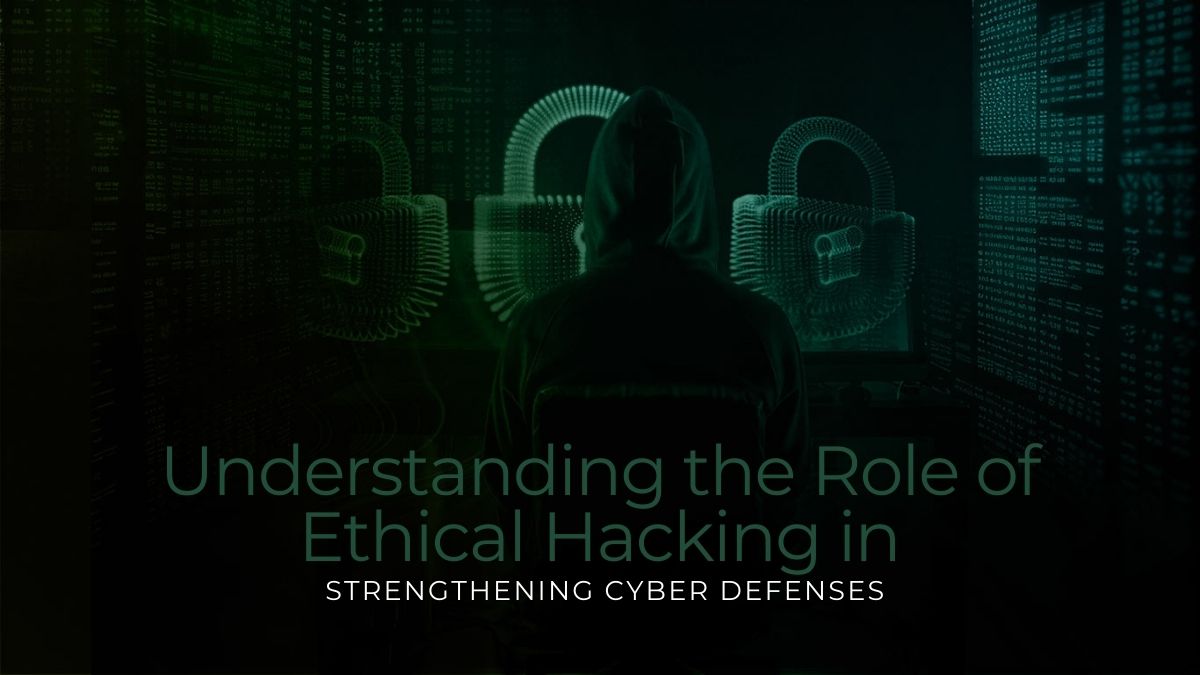
In today’s digital landscape, cybersecurity threats constantly evolve, and businesses face an ever-increasing risk of data breaches, malware attacks, and other cyber threats. As these threats become more sophisticated, organizations turn to ethical hacking cybersecurity practices to protect their valuable data and enhance security measures. Ethical hacking, also known as penetration testing or white-hat hacking, is crucial in identifying vulnerabilities before malicious hackers can exploit them, thus strengthening an organization’s cyber defenses.
Ethical hacking intentionally probes a system, network, or application to find security weaknesses that cybercriminals could exploit. Unlike malicious hackers, the organization authorizes ethical hackers to perform these security tests, and their primary goal is to improve the organization’s overall security posture. They use techniques similar to black-hat hackers but uncover and fix vulnerabilities instead of exploiting them for malicious gain.
Ethical hackers, often called white-hat hackers, employ various methods to simulate cyberattacks, including social engineering, network scanning, and application testing. Their findings help organizations identify gaps in their security infrastructure and develop strategies to protect against future attacks. As a key component of ethical hacking cybersecurity, this practice is essential for keeping up with the ever-changing threat landscape.
Ethical hacking plays a significant role in modern cybersecurity strategies for several reasons:
Ethical hacking involves a structured approach to finding and fixing vulnerabilities. The process generally consists of several key steps:
Ethical hacking employs a variety of techniques to assess and enhance cybersecurity. Some of the most common methods include:
With the rise in cyberattacks targeting businesses of all sizes, the demand for skilled, ethical hackers continues to grow. Companies increasingly recognize the value of ethical hacking as a proactive cybersecurity measure. In finance, healthcare, and technology industries, organizations are integrating ethical hacking practices into their security strategies to prevent data breaches and protect sensitive information.
Additionally, the proliferation of cloud services, Internet of Things (IoT) devices, and remote work has expanded the attack surface for cybercriminals. As a result, ethical hacking is now more critical than ever, as it enables organizations to stay ahead of the evolving threat landscape.
Ethical hacking is valuable to organizations and offers rewarding career opportunities for cybersecurity professionals. There are various certifications available that can help individuals build a career in ethical hacking, including:
The demand for certified ethical hackers continues to grow as businesses and government agencies look for professionals to help them stay one step ahead of cybercriminals.
While ethical hacking offers significant benefits in strengthening cybersecurity, it also comes with some challenges and limitations:
To maximize the benefits of ethical hacking, organizations should consider the following best practices:
Ethical hacking plays a vital role in ethical hacking cybersecurity, helping organizations stay ahead of cyber threats by identifying and mitigating vulnerabilities before they can be exploited. It is a proactive and essential approach for modern businesses seeking to protect their data, comply with regulations, and maintain customer trust. As the cybersecurity landscape continues to evolve, the significance of ethical hacking will only grow, making it a fundamental component of any robust security strategy.